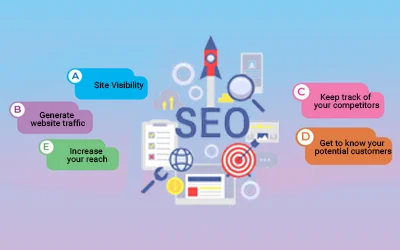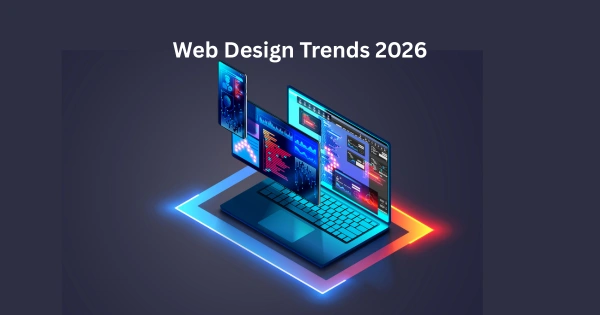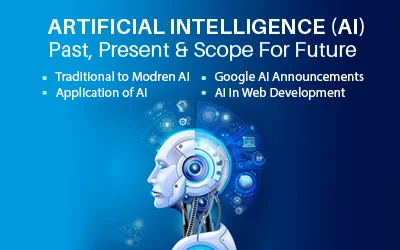The emergence of the internet, along with innovations in digital tech, have created a fresh phase in marketing, which is known as digital marketing. Modern business practices have included digital marketing extensively, enabling them to interact and connect with their potential customers via diverse online platforms. Gone is the era when businesses exclusively depended on conventional advertising methods such as printed adverts, outdoor hoardings, and television ads.
In this article, we'll delve into how many main pillars of digital marketing are there, their relevance, and optimal usage tactics. Mainly, effective digital marketing strategies lie in four main pillars.These pillars include Search Engine Optimization (SEO), Content Marketing, Social Media Marketing, and Pay-Per-Click (PPC) Advertising.
The Four Main Pillars of Digital Marketing
Digital marketing holds great significance in this era. Numerous strategies and channels are available for businesses to showcase their products or services while interacting with their customers online. Therefore, the answer to the question of how many main pillars of digital marketing there are holds great importance.
In the next sections, we will explain in detail how many types of pillars do we have in digital marketing. We'll cover the importance of each pillar, best practices to follow, and how businesses can use them successfully.
Pillar 1: Search Engine Optimization (SEO)
The principal pillar when questioning how many main pillar of digital marketing is SEO. Search Engine Optimization (SEO) is fine-tuning your website along with its contents to secure a top spot in the search engine results pages (SERPs) by appropriate keywords and phrases. The better your website holds a position, the higher its potential to draw attention from prospective customers.
SEO includes numerous strategies, for instance:
- Keyword research: Determining words and phrases your potential audience uses while searching for items or services matching your enterprise.
- Technical SEO: This means shaping and coding your website such that it is easily navigable and indexed by search engines.
- Link building: Obtaining top-tier backlinks from reliable websites, indicating to search engines your site's authenticity and reliability.
Employing efficient SEO techniques can notably enhance your website's visibility, lead to greater organic traffic, and eventually boost conversion rates and sales. Thus, SEO in Digital marketing is an important part to grow your business.
Pillar 2: Content Marketing
Content marketing denotes the creation and sharing of valuable, relevant, and regular content to attract and hold onto a distinctly defined audience. It's all about offering beneficial information, addressing queries, and solving dilemmas for your target customers instead of directly marketing your goods or services.
Content marketing can take various forms, including:
- Blog posts
- Informative articles
- Ebooks and whitepapers
- Infographics and visual content
- Videos and webinars
- Social media posts
- Podcasts
Creating successful content marketing hinges on understanding the requirements, interests, and challenges of your potential audience. The strategy includes crafting valuable information that tackles these aspects, in turn positioning you as a knowledgeable entity in your field. This practice can build trust and reliability among your audience, eventually fostering customer conversions and brand loyalty.
Pillar 4: Pay-Per-Click (PPC) Advertising
Pay-per-click (PPC) ads are a digital marketing method. With this approach, a company pays a specific fee each time someone clicks on their ad. This form of advertising can be seen on search engines, such as Google Ads, social media networks like Facebook Ads, as well as on other websites (known as display advertising networks).
Several advantages are associated with PPC advertising, which include:
- Targeted advertising: Your ads have the potential to reach an audience that is looking for goods or services similar to those your business offers.
- Measurable results: PPC frameworks offer in-depth analytics and measures, allowing you to keep track and fine-tune your campaigns for improved efficacy.
- Quick results: PPC marketing can swiftly direct traffic to your website, making it an efficient method of generate leads and boosting sales quickly.
The Significance of the Main Pillars in Digital Marketing
The four main pillars of digital marketing hold significant importance in today's competitive online landscape. Here are a few reasons why:
- Increased Online Competition: With the rise of digital marketing, the battle for online visibility and customer engagement increases. Properly harnessing these key pillars can give your business a competitive advantage in reaching and engaging with your desired audience effectively.
- Evolving Consumer Pattern: Consumer behavior has seen a significant shift towards digital platforms. More individuals are turning to the internet for exploring, purchasing, and interacting with brands. By utilizing these key pillars, companies can successfully meet and engage with their audience, where they spend most of their time.
- Diverse Marketing Possibilities: The key pillars of digital marketing create ample marketing opportunities for enterprises of various scales and sectors. Be it refining website content for search engine results, curating engaging social media campaigns, or launching targeted PPC ads - these pillars offer versatile paths to build relations with potential customers.
Also Read about Benefits of Digital Marketing
Effective Utilization of the Main Pillars
To make the most of the main pillars of digital marketing, businesses should consider the following strategies:
- Integrate the Pillars: Instead of viewing each pillar in isolation, merge them to work synergistically. Combining SEO, content marketing, social media marketing, and PPC advertising generates a holistic initiative that optimizes each pillar's impact.
- Get to Know Your Target Audience: Perform in-depth studies of your audience's tastes, habits, and demographic details to shape your digital marketing efforts and deliver bespoke and relevant experiences.
- Consistency and Quality: Furnish useful information consistently and maintain a constant brand tone and identity across all pillars. Quality must be the main concern while crafting content, launching campaigns, or implementing approaches.
- Measure and Optimize: Consistently review and scrutinize the outcomes of your digital marketing initiatives across all pillars. Utilize data-based insights to optimize your tactics and continuously enhance your performance.
Stay Up-to-Date: The domain of digital marketing is dynamic, consistently giving rise to innovative trends, platforms, and optimal methodologies. Keeping yourself updated with these new advancements and adjusting your strategies accordingly is crucial for maintaining competitiveness.
By utilizing the robust capabilities of the four primary pillars of digital marketing, businesses can create a strong digital identity. They can effectively interact with their desired audience and produce significant outcomes in this modern competitive digital environment.
If you want to elevate your digital marketing efforts, consider collaborating with a Trusted Digital marketing company in Delhi. They possess the knowledge and resources to develop and execute extensive strategies that use the fundamental pillars of digital marketing. Their full digital marketing services will aid you in accomplishing your business objectives and staying a step ahead of your competition.












Pillar 3: Social Media Marketing
Facebook, Instagram, Twitter, LinkedIn, and TikTok allow people to connect with others online. Marketing on these sites involves using their ability to talk with your target audience. It helps you raise awareness of your brand and advertise your products or services.
Social media marketing strategies can include:
Engaging your audience via comments, personal messages, and mentions can lead to a more human connection. These social media platforms let businesses create a personality for their brand. They can form strong bonds with their audience and tap into social proof and word-of-mouth advertising.